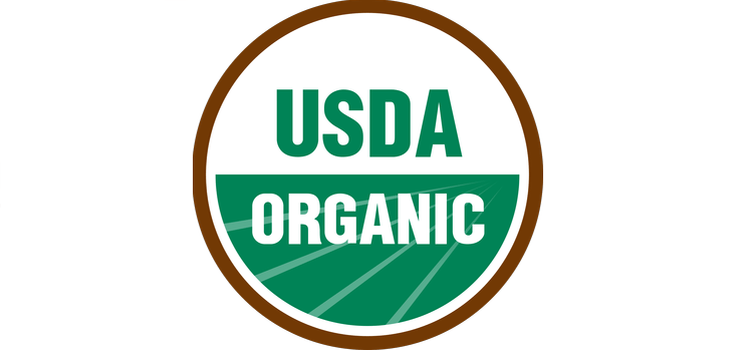Why Your Favorite Alcoholic Beverage May Contain Toxic Ingredients

It shouldn’t come as a surprise to anyone that alcohol isn’t a healthy alternative to water.
However, mild alcohol consumption has been shown to improve your cardiovascular health (and your tolerance for less-than-pleasant co-workers during office holiday parties).
What people don’t know is the full list of toxic ingredients that might make up our favorite commercially manufactured adult beverages. The strength of these claims is difficult to assess, because:
- Not all alcoholic beverages are regulated by the Food & Drug Administration
- Alcohol consumption is still a somewhat controversial topic; major brands want us to consume as much as possible, while special interest groups like the CSPI (Center for Science in the Public Interest) promote prohibitionist movements. This creates a lot of “junk” science online designed to further opposing agendas.
Thankfully, our favorite health-conscious, tequila-consuming health resource, Abel James, is able to shed some light on the situation.

Who Regulates Alcohol Labels?
Just as the FDA regulates the food we eat, the Alcohol and Tobacco Tax and Trade Bureau (ATTTB) regulates beer, wine, and spirits.
The ATTTB is a part of the US Department of the Treasury; it’s a little disconcerting that this regulatory body falls under the same organization that manages our nation’s budget.
According to the ATTTB’s labeling guidelines, there’s no requirement to list what’s in a bottle of beer—not even common allergens!
There are Allergens in Beer?
To put this in the least-alarming way possible, THE BIGGEST ALLERGENS! Some beers contain lactose, corn, peanut ingredients, wheat/gluten, and food dye. So if you have any major food allergies, beer pong is the alcoholic equivalent of Russian roulette.
Toxic Ingredients Too?
According to Abel James, ingredients considered “acceptable” in beer include:
- Monosodium glutamate (MSG)
- High fructose corn syrup
- Carrageenan
- GMO corn, rice, and sugars
- Propylene glycol
- Caramel coloring, insect-based dyes, and artificial dyes like FD&C Blue 1, FD&C Red 40, FD&C Yellow 5
- Calcium disodium EDTA
- Glyceryl monostearate and pepsin
Besides just sounding evil, most of these ingredients have been shown to have considerably negative impacts on human health. We’re not even going to start on BPA, which can seep into the beer you drink depending on how it was packaged.

What About Wine?
Yes, but there aren’t as many sketchy ingredients as there are in beer. Herbicides, pesticides, and other chemicals associated with grape production can leech into wine.
Big wine producers also often put sulfur dioxide (a preservative) in their wine to keep the flavoring consistent.
While vintage wines embrace evolving consistency over time, larger brands that produce cheaper bottles want their product to last with the same consistency.
Hard Liquor?
Toxins in spirits come either from the grain/fruit they’re produced from or from the mixers added to them. Mixing high-shelf potato vodka with Mountain Dew undoes any potential upside in consuming that beverage, but good options include:
- Tequila (made from the agave plant, which is non-GMO and not highly sprayed by pesticides)
- High-quality scotch
- Potato vodka
- Healthy cocktail ingredients such as kombucha, stevia, soda water, lime juice, and fresh mint.
WARNING: Many vodkas and whiskeys nowadays are made from corn—a huge GMO crop—so it’s always helpful to do your research before taking a trip to the liquor store.

Organic Alcohol Labeling
The best way to avoid toxic ingredients is going with 100% USDA organic beer, wine, and spirits.
The ATTTB partnered with the USDA in their National Organic Program to regulate organic alcoholic beverages. These regulations require that:
- Organic wine cannot contain added sulphites (unless they use organic grapes, then they can include a little bit. Read the label!)
- Organic beer and spirits must contain 100% organic agricultural ingredients, but similar to wine, a beer or spirit “made with organic ingredients” only needs to be 70% organic (unfortunately, neither are required to list every ingredient on the label)
What Abel James Drinks
The man himself gives us a look at his fat-burning liquor cabinet.
- Organic (low-sugar) wines
- Absinthe, made from a variety of old-age herbs and spices
- High-shelf organic vodka
- 100% organic tequila
- Organic beer; even though Abel’s not a major beer drinker, he recommends going with beers from smaller local breweries.
- Spirits from “Art In The Age”—alcohol made from all-natural ingredients listed right on the bottle.

Modern alcohol production has taken the same route as modern food production.
While there’s more than plenty to consume, the majority of it is bad for your health. Choosing which alcoholic beverage to drink (or not to drink) is only one of the million health decisions you’ll make to improve your quality of life.
Drink responsibly, and for the sake of class, do not mix vodka with Mountain Dew. It’s just so uncivilized.
